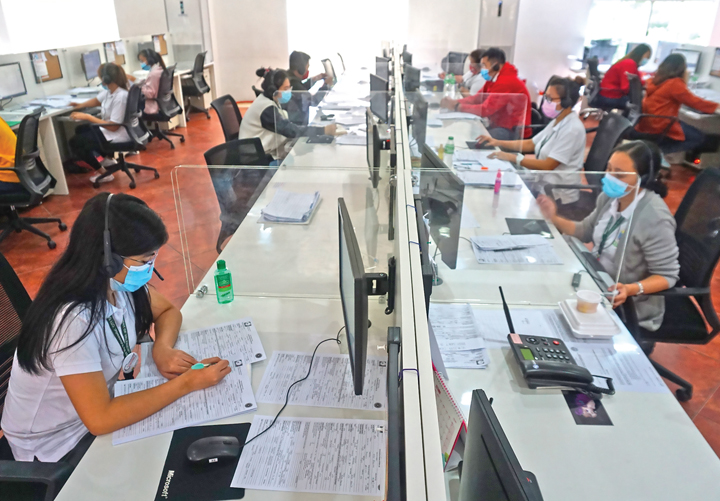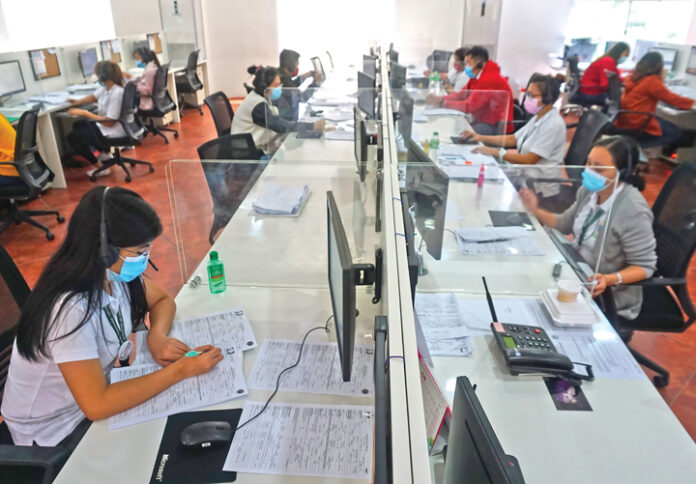
WHILE the Mandanas Ruling by the Supreme Court is expected to significantly increase revenues of local government units (LGUs), the World Bank raised concerns that this may worsen underspending by the government.
In its Philippine Economic Update (PEU), the World Bank estimated that the Mandanas Ruling will increase the Internal Revenue Allotment (IRA) for LGUs by 55 percent.
The IRA would reach P1.08 trillion or 4.8 percent of the country’s gross domestic product compared. This is significantly higher than the IRA’s amount this year which is only 3.5 percent of GDP.
“Local governments often lack the manpower and technical capacity to properly plan, prepare, implement, and monitor projects and services. This limitation in capacity is reflected in underspent budgets as measured by the budget execution rate, undermining effective service delivery,” the PEU stated.
Based on several scenarios, the World Bank estimated that allocating the entire increase in the budget to capital outlay is projected to reduce budget execution rates by an average of 14 and 13 percentage points for provincial and city governments, respectively.
The World Bank said the decline in budget execution is projected to be more substantial for municipalities at around 24 percentage points. This, the report stated, suggested that municipal governments face severe capacity constraints compared to provinces and cities.
However, the Washington-based lender said budget execution is expected to improve as local governments reduce their budget allocations to capital outlays.
Further, with the increased IRA, the World Bank expects the vertical fiscal gap to widen once the Mandanas Ruling takes effect. This will make LGUs more dependent on the IRA.
The report estimated that the increase in local government budgets is projected to increase total local government expenditure to P962 billion or 4.5 percent of GDP by 2022.
This will run contrary to making LGUs more reliant on their own revenues. The World Bank said the taxing powers of local governments have remained anchored on the provisions laid out by the Local Government Code, which did not improve their ability to generate own-source revenues.
“The wider vertical fiscal gap will be addressed by an increase in Internal Revenue Allotments, resulting in a much higher dependency ratio across all local governments. A stronger dependence on the Internal Revenue Allotment may further weaken local fiscal autonomy and accountability,” the World Bank said.
According to World Bank Economist Kevin Cruz, addressing weaknesses in planning and coordination is a first step toward managing the transition and improving decentralization.
He said the national government should define re-devolved functions and clearly communicate these to both national government agencies and local government units.
“The authorities need to ensure that the development goals of the national government and local governments are well-aligned, and that service delivery gaps are minimized, particularly during this unprecedented crisis,” Cruz said.
“This will require the national government and local government units to review the division of labor between national government agencies and local government units in re-devolving functions, while keeping fiscal and absorptive capacity in mind,” he added.
Other recommendations for managing the transition due to the Mandanas Ruling include channeling the increase in IRA toward local government’s Covid-19 response efforts to mitigate budget execution risks while providing much-needed support to local constituents.
The World Bank also recommended that the national government provide capacity building support to local government units to improve their implementation capacity and overall service delivery.
There is also a need to address inequality among LGUs by providing targeted support to poor local governments that lack proper capacity and resources.
Efforts to strengthen citizen’s capacity to demand accountability should be supported. This can be done by citizen participation in budgeting and expenditure processes; public hearings on budget information; civic monitoring of intergovernmental transfers; monitoring of local service provision; and social audits.
Read full article on BusinessMirror

